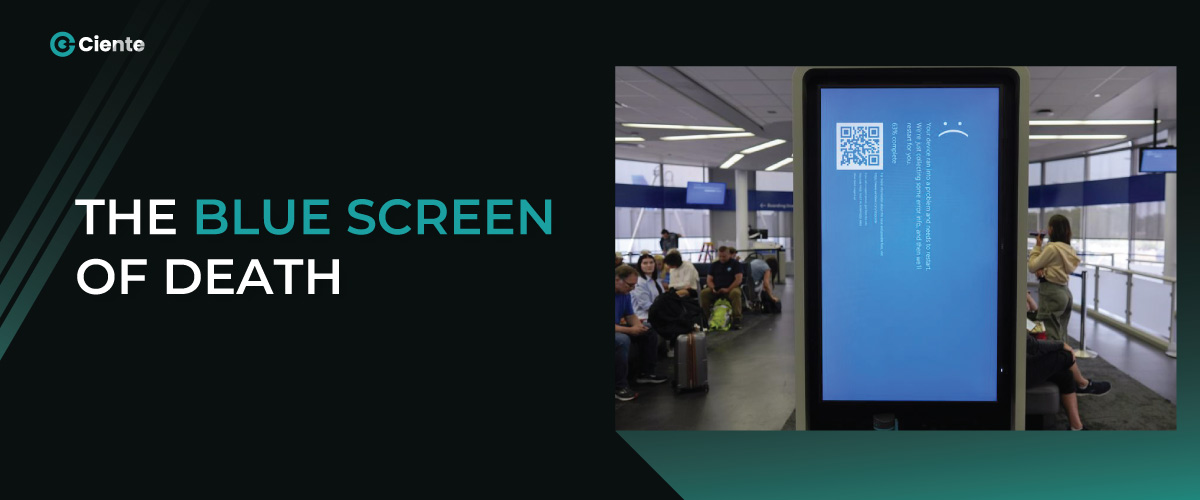Extended Reality is rapidly transforming the market dynamics. How are companies capitalizing on its potential as a billion-dollar industry?
As Industry 4.0 overtakes the world, technology opens endless possibilities for enterprises in research and innovation. Speaking about immersive experiences, Extended Reality (XR) encompasses the realms of Virtual Reality (VR), Augmented Reality (AR), and Mixed Reality (MR) and is the cornerstone of the Metaverse. This new frontier in the Universe of altered reality is revolutionizing how the world acts, functions, and socializes. A real-world filled with real people seems to be enthralled by a mimic world of extended reality, and businesses are generously leveraging immersive technologies to capture a global audience.
The global market for Extended Reality (XR) is expected to grow from $40.1 billion in 2023 to $111.5 billion by 2028 because of the enhanced experience it offers to brands.
Understanding the difference between Virtual Reality (VR), Augmented Reality (AR) and Mixed Reality (MR)
Simply put, XR fortifies itself on the technology landscape on the three key pillars: VR, AR, and MR.
Virtual Reality (VR):
Broadly speaking, Virtual Reality is where you get transported into a completely virtual world, with no touch with the real tangible world. It is fully enclosed, and synthetic and is possible through standalone, tethered, or mobile VR headsets that offer varied levels of resolution and immersive experience. The VR market is predicted to exceed $12 billion by the year 2024, and that is a splendid number to behold.
Augmented Reality (AR):
Augmented Reality is an amalgamation of virtual experiences and the real world. Adding digital elements on top of the real world is possible through smartphones, glasses, projections, gesture devices, or gloves. Currently, AR devices are being used globally by a substantial number of users who cherish immersive experiences.
Mixed Reality (MR):
While in AR, you are a mere spectator of the virtual objects, MR allows you to interact and manipulate both the physical and virtual environment. MR can be experienced through devices like Magic Leap One and Hololens for applications in remote assistance, gaming, architectural design, and more.
How does Extended Reality foster the new-age marketing strategy?
Many global conglomerates harnessed the power of XR in their products and created impactful ads that successfully amassed consumers who found them enthralling. Deploying such technologies and creating impressive ads have empowered companies to boost their revenue manifold.
Thomas Cook, the leading travel and tourism company, launched the “Try before you Fly” campaign, and their YouTube ad focussed on its abilities to help travelers virtually experience destinations and vacations. They also developed their VR headsets for this immersive experience.
The world’s favorite furniture brand IKEA, leveraged Augmented Reality technology to help customers see how a particular piece of furniture would fit in their living or bedrooms. The idea was to place the furniture from their catalog virtually in a real environment using their app.
Lowe’s Innovation Labs and their out-of-the-box ideas conjured the Holoroom concept, where consumers could wear VR headsets, hold a VR device, and virtually tile a shower to see how it looks. Through A/B testing, Lowes arrived at a welcome conclusion that this Mixed-Reality feature had a 36% better traction of purchases when compared to marketing only through YouTube ads.
People have always watched sci-fi movies and wondered and sighed, for the real world is never the way depicted in motion pictures. When they finally experience these through these leading brands, they are enthralled beyond expectation, positively boosting the brand image and leading to a better conversion.
Industries that have leveraged XR’s offerings to scale amplified revenue and growth.
Immersive technology has catapulted growth and success by manifolds across verticals and paved the way for unparalleled innovation. This section highlights how this game-changer has revolutionized education, real estate, entertainment, and infotainment.
Education
Leveraging XR has transformed how students learn and experiment and has propelled education to become 10x engaging. Forget boring labs and history classes, VR devices like Microsoft HoloLens help students seamlessly interact with virtual models and explore places.
Gaming
Games like Pokémon Go, Astro Bot Rescue Mission, and Beat Saber, to name a few, create a mixed reality environment for gamers. The world of gaming has reached heightened levels with this technology offering.
Healthcare
Incorporating Extended Reality technology in Healthcare, like simulating surgeries and procedures during training, has improved how trainees gauge the subject. Also, complicated psycho-somatic conditions can be treated, through XR and telemedicine effectively.
Manufacturing
Visualizing product designs through XR has helped manufacturers achieve better accuracy and make necessary changes in the production and innovation phase. Technologies such as these also facilitate cost-cutting and considerably enhance safety measures.
Retail
Virtual showrooms and trial rooms for apparel and cosmetics are massive advancements in the Retail sector by the power of XR technology, and brands like Tommy Hilfiger, Topshop, and FaceCake are generously capitalizing on the same. Balenciaga, the renowned fashion label, conducted a virtual fashion show showcasing their Fall 2021 collection, and the online event had a global viewership.
Real Estate
Forget brochures of homes under construction, home-owners can now experience their virtual homes before they even step into those in the future. Virtual walk-throughs help prospects trust the construction process even more.
How is XR being a solution-provider to decade-old challenges?
Though XR technology has advanced at a robust pace, and levied by many brands and industries, it faces severe challenges in the current state of affairs.
The Challenges
In the developing stages, XR technology faces some thriving challenges, like limited accessibility due to huge costs, privacy concerns and data threats, lack of content portability across platforms and devices, and low-end devices’ inability to justify the visual appeal created by it. To add to the woes, a disconnected existence by people globally can expedite the rise of psychological issues like social awkwardness and disorientation and further lack of humanness.
Conclusion
The global market keeps its eyes wide open at the most enthralling experiences and gauges every new technology release with hawk eyes. Top-notch businesses invest a lavish amount in these technologies, and rightfully so, to earn solid patronage from this consumer base ever-starving for experiences. The result is that technology is advancing exponentially.
Whatever the fad may be, whether rejoicing in a tech-rich experience to enhance shopping, learning, innovation, or staying connected with fellow humans virtually yet realistically to mitigate geographical disconnect, the scope of XR is enticing. With technology progressing steadfastly, XR is predicted to revolutionize every industry or product that relies on user experience.
Today, not all enterprises can afford to leverage XR’s capabilities, but soon, as the demand for technology on budget increases and competitors developing XR software strive for consumer attention, this game-changer will be easily accessible and deployed across verticals and brands. This technology is seamlessly blurring the boundaries between the real world and an imaginary world, and when used cautiously, it can elevate the way nations progress.





